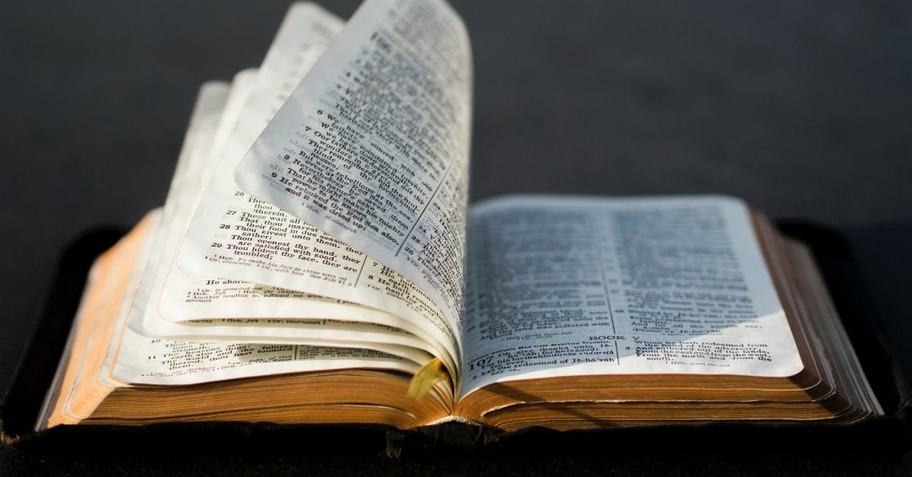I have to admit something to my shame. I never read the book of Isaiah until 2017. Oh, I read and even memorized a few verses, but I was afraid to tackle the book, thinking it would be too difficult. I almost missed this treasure in God’s Word! It is long and sometimes confusing, and much of it is in a poetic style in spite of its prophetic nature, but it also speaks of some of the grandest themes in scripture.
Isaiah was a prophet of God
The Jews claim Isaiah was from a royal family. He was a prophet primarily to the Kingdom of Judah, which passed through repeated seasons of rebellion and revival. He authored the book that bears his name between 739 and 681 B.C. Scholars point to the numerous times people in the New Testament, especially Jesus, quoted from Isaiah.
With commanding authority, Isaiah spans the ages, from the biblical past of God’s people, to the hope of Israel’s bright future with the coming Messiah in New Jerusalem. He is sometimes called the “Evangelical Prophet” because of his emphasis on the Messiah.
Here are some reasons Isaiah is important:
Photo Courtesy: Unsplash

1. Isaiah Proclaimed God's Holiness
The prophet’s lofty vision of God’s holiness is a major reason this book is so unforgettable. Isaiah presents an exalted picture of the Lord of Hosts in a God-focused, God-centered, and God-honoring way.
In his vision, Isaiah viewed the heavenly seraphim: “And one called to another and said, ‘Holy, holy, holy is the LORD of hosts; the whole earth is full of his glory!” (Isaiah 6:3) In the presence of these celestial angels and realizing the holiness of the Lord, Isaiah cried out, “Woe is me!” (Isaiah 6:5) He was appalled by his own unholy state.
Like Isaiah, we need to hear the words of the One “who inhabits eternity, whose name is Holy.” (Isaiah 57:15) God says, “I dwell in the high and holy place, and also with him who is of a contrite and lowly spirit, to revive the spirit of the lowly, and to revive the heart of the contrite.” The Holy God drew near to those who came to Him and humbly repented of sin. Today, Christians come to God through His Son, Immanuel: “God with us.” (Matthew 1:23)
Photo Courtesy: Unsplash/Karl Fredrickson

2. Isaiah Revealed the Cause of Satan's Fall
Isaiah 14:12-15 is believed to be a symbolic description of the fall of Satan, the Day Star (or “Morning Star” in some versions) from his exalted place in heaven. We see this again in Ezekiel 28:12-18 where two kings are mentioned, but Satan is the spiritual force behind the kings’ actions.
Satan(meaning “accuser” or “adversary”) actually has many names. (Luke 10:18) He and the other angels were created before God made the earth, before Genesis 3, when Adam and Eve walked in the garden. We see the pride that filled Satan’s heart with his series of “I will” statements in Isaiah 14. He was a beautiful angel and God’s anointed cherub, but when he coveted God’s position and led a coup against him, Satan didn’t just “fall”—God cast him out. (Ezekiel 28:12-17, Isaiah 14:15)
An important lesson for us: like the “Day Star,” we were created to declare the praises of the Lord and reflect His marvelous light. (1 Peter 2:9) But just as pride and rebellion polluted God’s anointed cherub, these sins can also destroy our worship of God and reflection of His glory.
Photo Courtesy: Unsplash/Aaron Burden

3. Isaiah Described Israel's Blindness
Paul speaks of Israel being “blind in part” in Romans 11:25: “Israel has experienced a hardening in part until the full number of the Gentiles has come in…” This was described in Isaiah when God saidHis disobedient people “Keep on hearing, but do not understand; keep on seeing, but do not perceive.” (Isaiah 6:9)
There will come a time when those eyes will be opened. (Isaiah 42:7, 2 Corinthians 3:14-16) God will lift the veil of blindness in Israel. Theologian Dr. Harry Ironside states, “When the LORD Himself appears in glory, this blindness will pass away, not only from the eyes of Israel who are now unable to understand their own scriptures because of the veil that is upon their hearts, but from the eyes of the Gentiles as well.”
This mystery is that the Gentiles are fellow heirs with Israel, and “partakers of the promise in Christ Jesus through the gospel.” (Ephesians 3:6) The glorious truth is this: God’s sheepfold will be full and the Old and New Testament saints will follow one Shepherd. (John 10:16)
Photo Courtesy: Unsplash/ Guillaume Bolduc

4. Isaiah Pronounced God's Coming Judgement
While Isaiah ends his book with hope and comfort, we can’t ignore his beginning pronouncements. Isaiah reproved Israel and let God’s people know in no uncertain terms that rebellion, pride, idolatry and sin will not, cannot go unpunished. (Isaiah 1:2; Isaiah 2:11-20; Isaiah 34:1-2; Isaiah 42:25)
The Lord is a “consuming fire.” (Isaiah 33:14; Hebrews 12:29) In judgment for sin, His breath is like “a stream of burning sulfur,” the prophet says. (Isaiah 30:33) Isaiah also wrote about God burning the “strong.” (Isaiah 1:31) Other imagery in Isaiah describes Israel as a vineyard “trampled” upon. (Isaiah 5:1-7)
Clearly, judgment for sin is deserved and will be executed. For the Christian, this is a good reminder of why we need the Messiah, the Savior, who became sin for us and took our judgment so we might become the righteousness of God in Him. (2 Corinthians 5:21, John 3:18, John 5:24)
Photo Courtesy: Unsplash

5. Isaiah Testified to God's Mercy and Grace
Though judgment and blindness would surely come, Isaiah also recognized God’s compassion in repeatedly rescuing Israel. In the days of Isaiah, Judah was threatened with destruction by Egypt and Assyria, yet God in His mercy spared Israel.
Some of the descriptions of God’s mercy and grace in Isaiah include the phrases: “a highway for the remnant,” “the LORD will have compassion,” and “a refuge from the storm.” (Isaiah 11:16; Isaiah 14:1-2; Isaiah 32:2; Isaiah 41:14-16) One of my favorite statements from God to Israel is in Isaiah 41:14: “‘Do not be afraid… little Israel, do not fear, for I myself will help you,’ declares the LORD, your redeemer, the Holy One of Israel.”
Our God is a compassionate God. (Psalms 86:15) Compassion comes from the words to “suffer with.” Though the righteous Judge must judge sin, He is also heartbroken over the way His children struggle with it. Isaiah 30:18 says, “Yet the Lord longs to be gracious to you; therefore he will rise up to show you compassion….” His compassioncompels Him to guide, lead and comfort his people. (Isaiah 49:10; Isaiah 49:13) Though tough circumstances were ahead for Israel, God’s unfailing love would not be shaken, and His covenant of peace with them would not be removed. He truly is a compassionate and kind God! (Isaiah 54:10; Isaiah 63:7)
Photo Courtesy: Unsplash/Aaron Burden

6. Isaiah Called God's People to Repentance
In Isaiah 30:15, God called Israel to “returning and rest,” described in some translations as “repentance,” and a resulting quiet confidence. Charles Spurgeon described repentance as “a discovery of the evil of sin, a mourning that we have committed it, a resolution to forsake it. It is, in fact,” Spurgeon said, “a change of mind of a very deep and practical character, which makes the man love what once he hated, and hate what once he loved.”
Isaiah entreated God’s people to repent, saying, “Seek the LORD while he may be found; call upon him while he is near,” and he admonishes, “let the wicked forsake his way, and the unrighteous man his thoughts.” (Isaiah 55:6-9) God’s thoughts and ways are not our thoughts and ways. Why did Isaiah implore Israel to return to the Lord? That he may “have compassion” and “abundantly pardon.”
The Lord God calls His people to repentance because He alone is God, and He alone can save us. (Isaiah 45:22; Isaiah 46:13) Before the cross, John the Baptist also called the Jews to repentance, and after the cross, the disciples preached repentance to “all people everywhere.” (Matthew 3:1-2, Acts 2:38)
Photo Courtesy: Unsplash

7. Isaiah Predicted Israel's Restoration
Israel, blinded and judged for centuries, will someday be restored as a nation. It will happen at the return of their rejected Messiah, Jesus, and it will result in great worldwide blessing. We see hints of this forgiveness and restoration in Isaiah, and it’s even clearer in Jeremiah and Ezekiel. (Isaiah 43:2, Jeremiah 23:5-8, Ezekiel 37:21-28)
Isaiah notes, “It will be said on that day, ‘Behold this is our God; we have waited for him, that he might save us… let us be glad and rejoice in his salvation.’” (Isaiah 25:9) Isaiah describes the restoration and the healing of the nation in chapter 26. I love verse 15: “…you have increased the nation, O LORD … you are glorified….” (Isaiah 26:15) The wonderful purpose of Israel’s restoration is that His chosen people will finally bring Him the glory He deserves for sending the Messiah.
Isaiah predicted the gathering of the Jews from around the world to return to their homeland. (Isaiah 43:5-6) Someday Israel, restored and healed, will “take root … blossom and put forth shoots and fill the whole world with fruit.” (Isaiah 27:6)
Photo Courtesy: Unsplash/ Alexandru Tudorache

8. Isaiah Pointed to the Coming Messiah
Isaiah points to the ruling Messiah, but also the suffering Messiah. (Isaiah 9:6, Isaiah 53) In Jesus’ First Advent, He was the Savior who suffered and died for man’s sin; but in the Second Advent, He will be the victorious and conquering King, our Prince of Peace.
Isaiah says the Messiah will rule in justice and righteousness. (Isaiah 9:7; Isaiah 32:1) His kingdom on earthwill fully reveal God’s righteousness and peace to the world, and finally bring peace and safety to Israel. (Isaiah 65-66, Isaiah 11:6-9)
One of the blessings of the future kingdom is Israel’s testimony. (Isaiah 42:6; Isaiah 55:4-5) Israel will be a light—a witness—to all the nations because of the Messiah.This is echoed in Luke 2:32. No longer “blinded,” the Jews’ eyes will be opened to the light of the gospel.
Photo Courtesy: Thinkstock/mbolina

9. Isaiah Declared the Gospel of Hope
Some scholars call Isaiah the “fifth Gospel.” God “orchestrated” every detail of Jesus’ crucifixion. Everything that happened at the cross fulfilled the prophecies of Isaiah 53 and other messianic prophecies in the Old Testament. As the herald of good news, Isaiah points us to the only hope for fallen man. (Isaiah 40:9)
As predicted by Isaiah, Jesus, Israel’s Messiah and our Savior, was born of a virgin; the prophet’s gospel story is complete and clear in Isaiah 53, played out in the New Testament. (Isaiah 7:14, Matthew 1:18-25) As an adult, Jesus was despised and rejected, and on the cross, He was stricken by God and pierced for our transgressions. (Isaiah 53:3-5, Luke 13:34, John 1:10-11, Matthew 27:46, John 19:34, 1 Peter 2:24)
Through His suffering, Jesus paid the punishment we justly deserve—He is our perfect sacrifice. (Isaiah 53:5, Hebrews 10:10) The Father laid on the sinless Son of God our every sin, and in His sacrifice and righteous life, we become God’s righteousness in Him. (2 Corinthians 5:21)
Photo Courtesy: Unsplash/Malik McCotter

10. Isaiah Rejoiced in Israel's Future
Isaiah says Israel and the earth be restored to pre-fall conditions. God will make a new creation—new heavens and a new earth—and we will “rejoice forever” in what He creates. (Isaiah 11:6-9) The entire cosmos will be restored. In that day, Jerusalem will be “a joy,” and the people of Israel will be “a gladness.” There will be no more weeping or cries of distress. The kingdom age will be incredible!
The Lord will “swallow up” death forever. (Isaiah 25:6-8) God’s people will rejoice in His presence, their “reproach” taken away. In fact, God says to His people, “I have redeemed you; I have called you by name; you are Mine!” (Isaiah 43:1)
One of Isaiah’s challenges to God’s people is to praise Him in song, “for He has done excellent things,” and He wants this to be known throughout the earth. (Isaiah 12:5) Isaiah says, “Sing to the LORD a new song! (Isaiah 42:10) In fact, God will command all nature to “sing for joy” in those days. (Isaiah 44:23) The Lord will once and for all redeem Israel, and He will be glorified in them.
Photo Courtesy: Unsplash/Robb Leahy
Originally published June 18, 2018.







